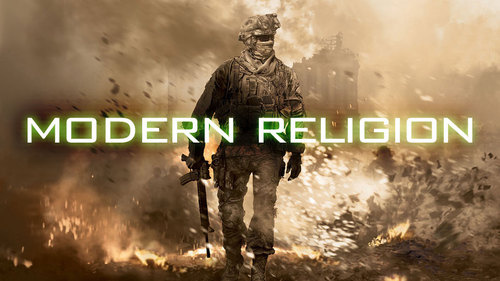I have always been a huge advocate of ethical reflection and thoughtfulness in the classroom. I believe that regardless of what you teach about or what you teach with, you should be cognizant of the possible ramifications for your students. For example, I gave a talk in 2011 about how problematic it is to use cell phones to teach composition (which was all the rage at the time). I collected all the phones in the room full of professors and touched them, opened them, and closed them while giving my talk (there were a lot of flip phones for some reason). One person came up to me afterward to tell me how shocked she was: “I wanted to cross that room and rip that phone out of your hand. I can’t believe what a violation that was. I will never use phones in my classroom.”
And so it goes. As educators we are drawn to the possibility and the promise of new technology and its usefulness in the classroom. We are ever struggling to find ways to make the principles and skills we believe in meaningful to our students. Need to teach concision? Use Twitter. Teach audience? Use LinkedIn. Teach citationality? Use blogger. With classes on social media strategy beginning to become more popular, it is no wonder that we are continually faced with the ethical question: is the bad worth the good when we expose our students to potentially dangerous technologies?
At a conference I was at last week, this topic came up in the Q&A of a gaming panel. The three panelists had given great presentations on how they use games and game design in the classroom (all male, which I mention because it kind of matters later on). The first one was about how he uses Minecraft to teach many principles, focused on both game design and writing. The second was on writing game manuals. The third presenter talked about how he uses Twine in the classroom. It’s exciting that folks are using new technologies to teach this stuff. What I find even more impressive is that it seems we are slowly, but surely, moving beyond the idea that teaching with and through games is only relevant if we can apply those skills to other things. Sure, teaching storytelling through Twine teaches a lot of stuff, but it teaches valuable principles about how stories are told in video games (because, hey, that matters too!).
At any rate, there was a pointed (and relevant) question after the panel for the Minecraft presenter: “Given all the harassment issues surrounding video games, I for one, have an entire file of death threats on my laptop, why would you choose such an entirely masculine game, with a male-dominated community, and masculine-centered message to teach in the classroom? And how do you deal with female students who resist this?” You, reader, may not attend academic conferences. But I can assure you that this does not happen often. The presenters are often graduate students, and audience members will usually throw a softball question towards them, or a suggestion about where to go with future work. But rarely—unless you’re a big name—do you get this pointed of a question.
The respondent did a fair job of explaining why he used Minecraft: it’s popular, it teaches things other games don’t, it’s complete, and so on. For female students, he tries to make the classroom a safe space, pointing out to those who have been told they shouldn’t game because they’re girls, that the people who said that aren’t in the classroom, i.e., your brother isn’t here taking away the controller, so let’s play.
It’s kind of an endearing and empowering message: those assholes aren’t here, so let’s game. The one thing the presenter said too that really stuck with me is this: all students have a kind of capital when they leave. His students have made a game. This gives them the background to be more of a gamer, to have more credibility, and (in theory, though he didn’t say this) to be better equipped to deal with harassers. Now, this is not how I would have responded, but I think it was honest and compelling. But what does that capital do for students? Are they better off with another, less dangerous, kind of capital? And truthfully, Minecraft can be dangerous.
Here are the questions I’ve been wrestling with since this moment:
- Is it our ethical responsibility as educators to use neutral technologies and programs in the classroom?
- Do we have an obligation to prepare students for what they may face once they leave our safe spaces?
- Is teaching a problematic technology, that may endanger students, ever worth it?
Here is where I am:
1. We as educators can be at our best when we interrogate the technologies we use and teach our students. That said, technologies usually aren’t simply good or bad. Open source software, for example, has a ton of ethical positives. However, the open source community is one of the most hostile to women, with some of the highest con sexual assaults and widespread harassment of women. But is it better to ask students to shell out for Microsoft because the FLOSS community is fucked up? Microsoft I’m sure at least has a harassment policy. But who knows what problematic things happen inside that company. Can technologies be forever tainted by their community?
That said, we should always try to teach the peripheral lives of technologies. As with the cell phone example, we should really think about what we are asking our students to do when we ask them to use cell phones in the classroom. Students use their phone for identity creation, sex, and many other things that might make them extremely uncomfortable if asked to use it for class. We ourselves should be aware of what’s happening in the community surrounding the games we teach. I don’t believe you should ever teach a video game class without talking about harassment, ethics, and culture in the community. That stuff is so wrapped up into every game, every company, and every movement in games. If they don’t understand that, then no matter how many awesome game levels our students can program, they aren’t equipped to exist in the world of games.
2. I hate the idea that by exposing girls to gaming that I may be setting them up for a lifetime of harassment. I am helping with a technology camp for high school girls in two weeks. I will be teaching them game design principles with the hopes of opening up games and game design as a potential career option. Often women don’t go into gaming, even if they’re in STEM, because they don’t see it as a viable possibility because 1)they’ve never been exposed to it or 2)there aren’t enough available role models.
Let’s say two to three girls are moved by my workshop and decide to study game design. What have I really done? Have I fed two more women into a system that will rip them to shreds? Have I set they up for years of harassment, sexual assault, a lack of respect from colleagues, and probably eventually leaving the field? Or have I begun a change in the conversation? Will six more girls see those two and decide to go into the field? Will there be a cascade of women entering gaming, thus changing the culture? I don’t know the answer to that. I am operating under the second scenario, where keeping girls away from gaming doesn’t help anyone, but instead adding as many as possible will create eventual change. However, I am still responsible for preparing them to face the problematic community and environment. That has to be a conversation, and one that isn’t just at the periphery, but is at the center of what it means to study games.
3. And finally the third question, the one that haunts me. Is it worth it? We could just teach writing. We could just focus on sentence diagramming and the canons of rhetoric. Is it worth it to use games in the classroom, given all these potential downfalls?
Fuck yes. First of all, writing has never been a neutral technology. Writing has been and still can be just as bloody and dangerous as gaming. People died in the name of rhetoric, at one time. Perhaps even still today. Pretending that that history doesn’t exist is ridiculous. Does gaming hold more immediate danger, danger for a segment of our population that is already disenfranchised? Yes. But hasn’t it always been so? Women and other people who have found themselves without power and without a voice have had to take it for themselves, through writing and through rhetoric. Now we will take it though gaming.
I wouldn’t have answered that Minecraft is appropriate to use in the classroom because I, all powerful instructor, has granted it be so. I would have said that pretending Minecraft and the community isn’t possibly the most powerful game when it comes to education is a fantasy. It’s being adopted by schools en masse–particularly classrooms with an audience of students who aren’t reached by traditional classroom methods. What can be better than sending students out equipped to ask questions, to problematize, to make the community safer for everyone? It’s a dangerous game, but one that needs to be addressed and talked about by educated people equipped to change the community for the better. This conversation can and should happen in a college classroom, so that next time, when Minecraft is being taught, everyone knows the risks, the potential, and what questions to ask.





2 thoughts on “Bloody Histories, Dangerous Communities: Educators’ Ethical Responsibilities Teaching Games”
Lots to think about here, Alex. I agree absolutely that we’ve got to teach the culture along with the texts–and the strategies that can empower and protect in that culture.
I do have an issue with your representation of students, particularly female students. I taught a course this past spring, a mid-level video games as literature course. Over half the students were women and among those 8 were 1 professional gamer, 1 active online commentator, and 4 who were life-long gamers and all-too familiar with the culture. The remaining 2 were self-described non-gamers (who, it turns out, played a lot more games than they realized) who took the course to gain literacy in gaming so they could be more effective in their future high-school classes. (The men in the class skewed about the same, but there were no “non-gamers.”)
I designed the course to explore both formal and critical dimensions of games and gaming, so the subject matter was right there at front. And I was amazed and humbled by the level of literacy and understanding they all had of the issues. I teach at a regional state university, so I don’t have a particularly unusual demographic.
Now, on the other hand, I’m currently teaching a graduate student seminar and of the 8 in that class, only 2 are dedicated players and 3 have played almost no games at all. The latter have become converts and are already thinking about how to incorporate games into their own syllabi. I’ve now added this article to next week’s readings as we head into the #gamergate unit.
But back to the undergraduates and the women in the course who don’t seem to quite match your representation. Thoughts?
Great points! I’m so grateful that there are people teaching a critical curriculum around gaming!
I’m not really sure where you see me representing female students that you are taking issue with– perhaps you’re referring to the section where I am talking about how the presenter was discussing his female students? Of course there would be girls who are comfortable saying they’re gamers in your video game class since that’s self-selected and labeled as such (it sounds like, at least). The class being presented on at the conference was a freshman composition class. You can imagine that there would be a lower representation of gamers in that class, both male and female. I don’t think he was making a general statement about how women should be treated in courses that use games, but perhaps more stating his experience. I probably represented his position poorly.
But to your larger point–while I agree that there are a ton of girls who game, in the rest of the post I’m particularly talking about girls who choose to go into gaming as a career–which is still dismally low. I’m also focusing the ethical questions when exposing male or female students to the world of games ethically and cautiously. I think will show up slightly differently in a video game class as opposed to using games in writing or other classes. The core issues will be the same, of course, but the student needs and expectations may vary slightly.
I think you’re right that we need to 1) not make assumptions that our female students don’t already have a lot of gaming literacy and 2) make sure our course content is reflective of everyone of all skill levels. Thanks for the comment!